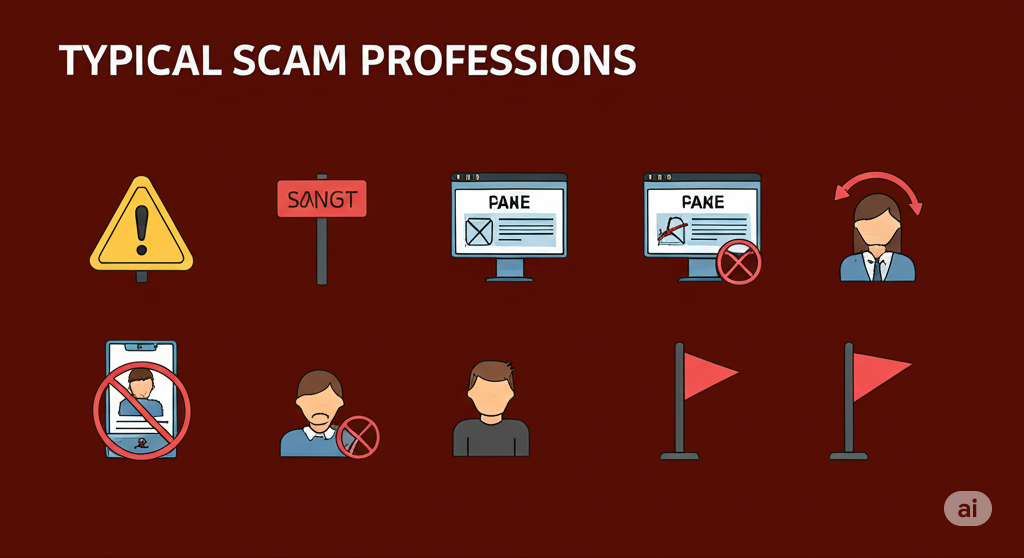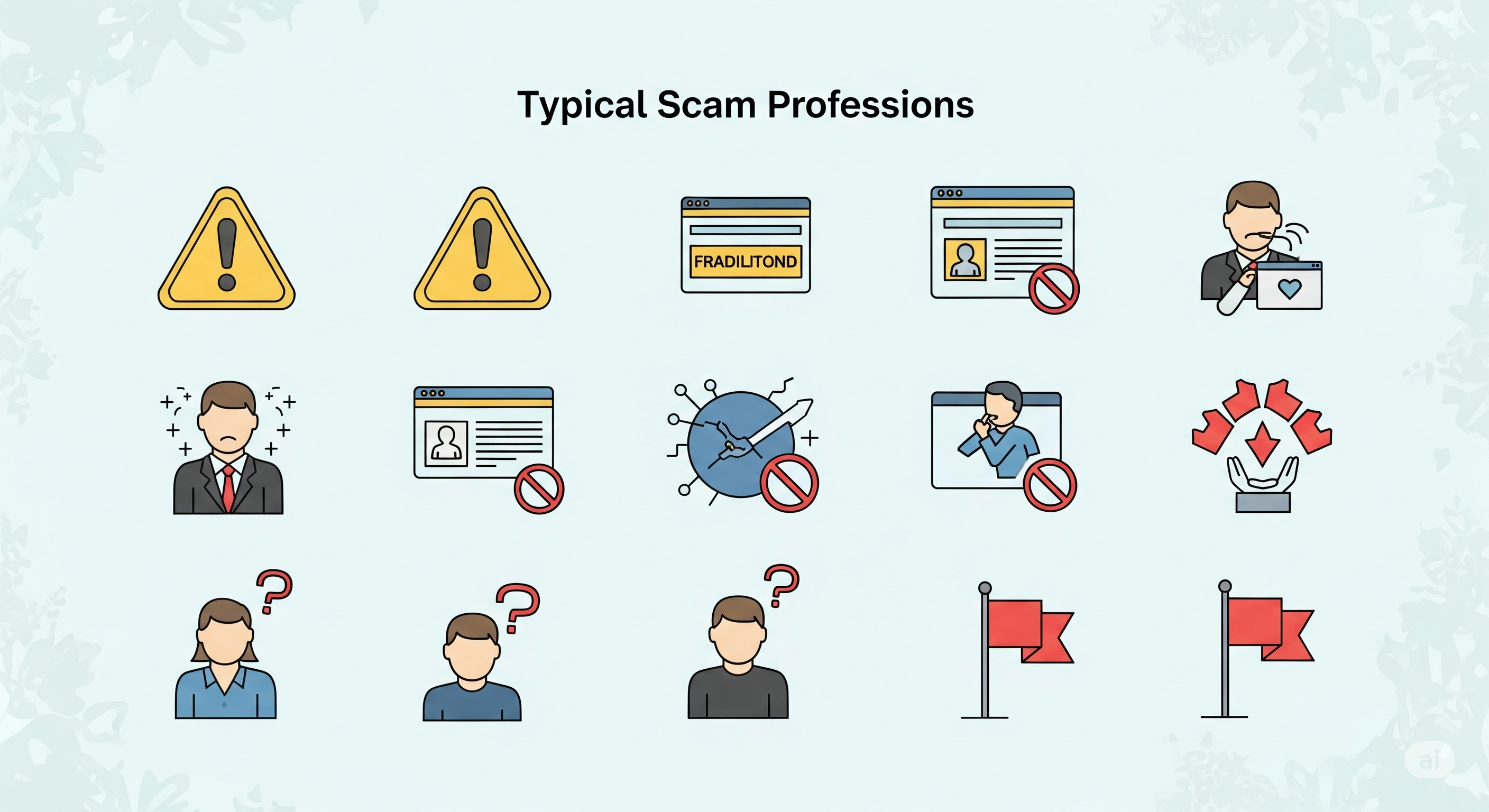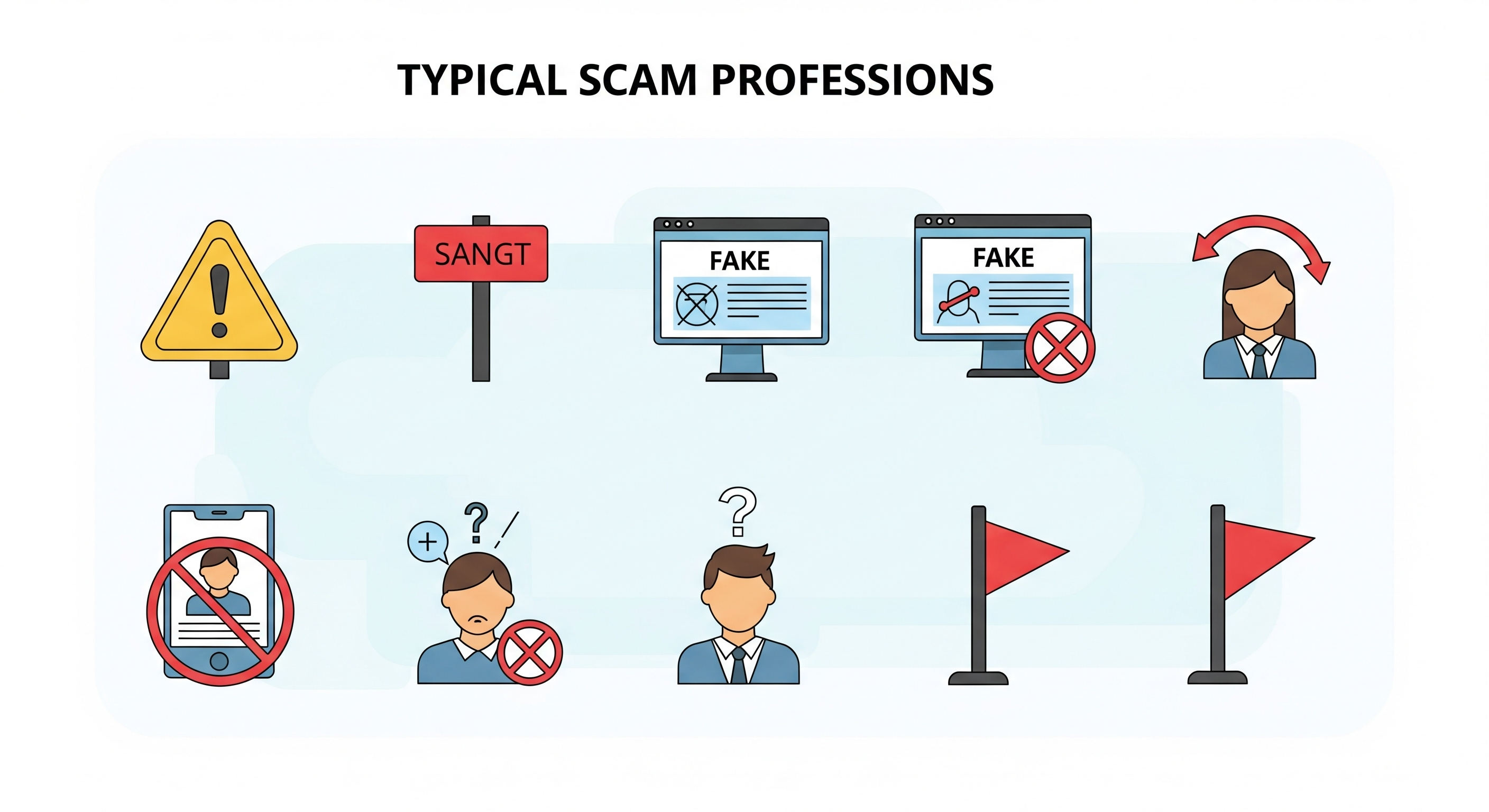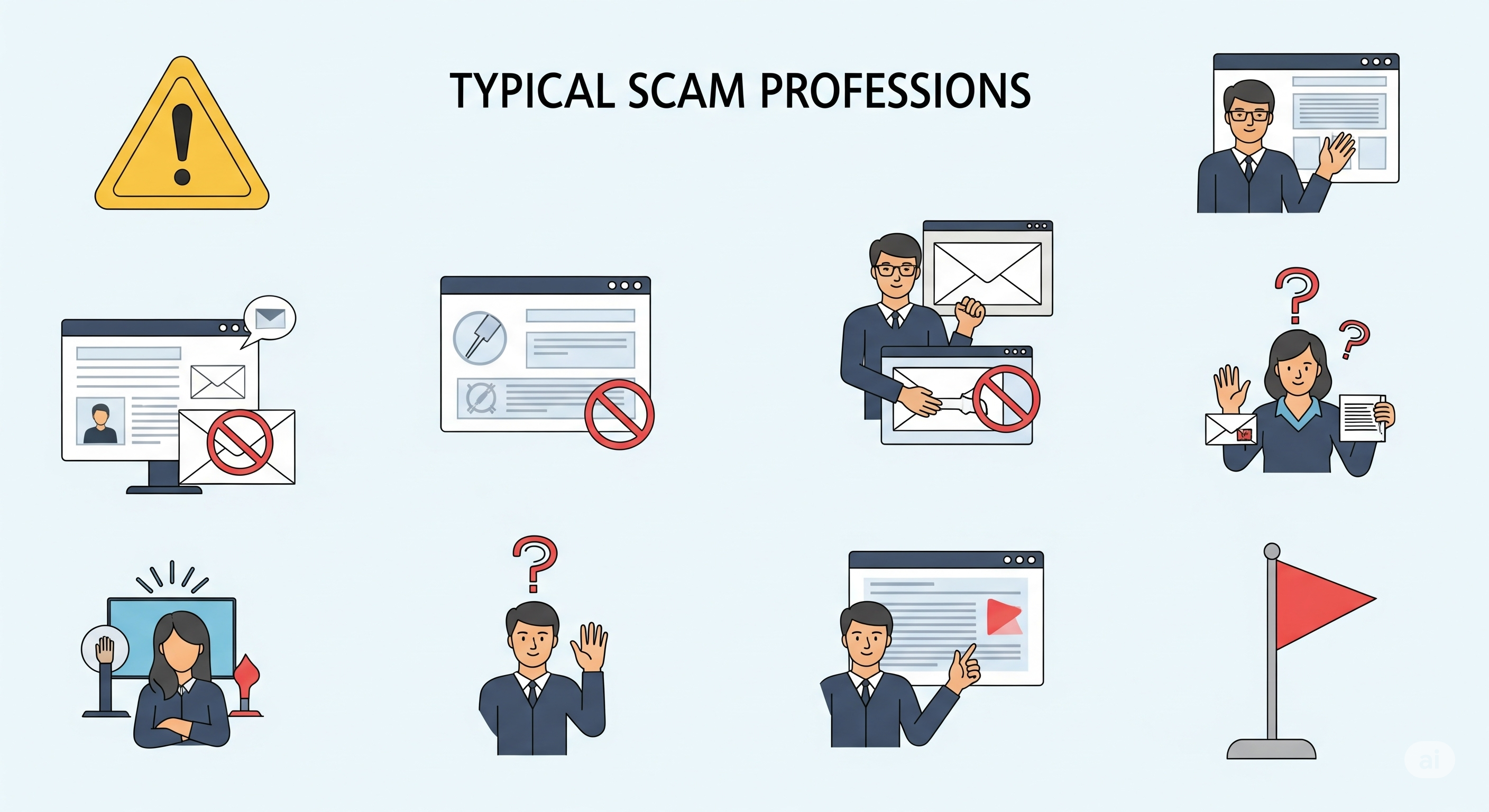Tips & Support
Typical Scam Professions
Typical Scam Professions
By Admin
Related Topics

Reverse Image Search Scams
Reverse image search is a great way to prevent internet frauds but like many tools it may also be used......
Read More

Love Bomb Then Ghost
It s common to interact with people online these days but it also opens the door to new kinds of......
Read More

After an Online Scam
It is really scary to fall for an internet fraud nbsp You could feel betrayed and confused for a long......
Read More

Spotting Real Business Pages
In today s digital-first world knowing how to spot a real business page isn t just a helpful skill it......
Read More

Reverse Image Search Scams
Reverse image search is a great way to prevent internet frauds but like many tools it may also be used......
Read More
Love Bomb Then Ghost
It s common to interact with people online these days but it also opens the door to new kinds of......
Read More
After an Online Scam
It is really scary to fall for an internet fraud nbsp You could feel betrayed and confused for a long......
Read More
Spotting Real Business Pages
In today s digital-first world knowing how to spot a real business page isn t just a helpful skill it......
Read More


